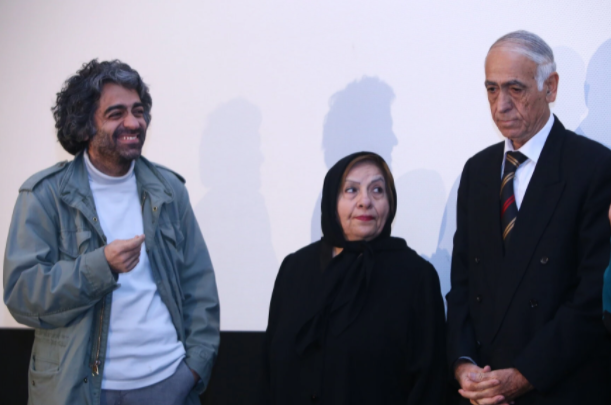August 06, 2021

Responding to a sensational murder case where an aged couple stand accused of killing and dismembering two of their children, the Judiciary has now asked the Majlis to increase the penalty for fathers who kill their children.
Under current law, parents accused of killing their offspring face no more than 10 years in prison while others face the death penalty for murder.
Akbar Khorramdin, 81, and his wife, Iran Mousavi, 74, stand accused of killing a son, a daughter and a son-in-law in each case chopping up the bodies and scattering their remains in trash bins around Tehran.
But neither has yet been charged with any crime. Officials have told the media the couple are still undergoing psychiatric investigations.
If Akbar Khorramdin, a retired army colonel, and his wife, a homemaker, are remorseful, they have done a good job hiding it. “I have no guilty conscience for any of the murders,” the colonel said in a television interview from detention. “I killed people who were very morally corrupt.”
Mrs. Mousavi appeared no more contrite. “We decided together, the two of us,” she said in a television interview shortly after she was arrested. “My husband suggested it and I agreed. I have a great relationship with my husband. He doesn’t beat me or curse at me.”
In televised interviews, the parents said they had killed their children because they disapproved of their lifestyles. They accused their son of being physically aggressive, and said he was freeloading off them and having sex with girlfriends. Their daughter, they claimed, was addicted to drugs and drank alcohol, while her husband was abusive and dealt drugs.
Colonel Khorramdin told the authorities that he would do it all over again and might even kill his other two adult children, if he were released, according to news reports.
The couple were arrested after sanitation workers collecting trash discovered a bag containing body parts May 15. The discovery was made at a vast apartment complex, Shahrak Ekbatan, where Babak Khorramdin, 47, a relatively unknown film director, lived with his parents. Forensic experts got fingerprints from a piece of a hand, and identified him as the victim, the authorities said.
When investigators reviewed surveillance footage taken from the building’s elevator the night before the body parts were discovered, they saw the couple transporting large plastic trash bags and a suitcase, the authorities say. The mother held the elevator door open as the father made a few trips bringing the bags into the elevator.
Over the next few days, investigators discovered missing-person reports filed for the couple’s daughter Arezou, who disappeared in 2018, and her husband, Faramarz, who went missing in 2011. The couple then admitted having killed them, too, the authorities said.
“Arezou was a very quiet girl. She never harmed anyone and growing up she was very obedient and didn’t even have boyfriends,” said Jaleh, 47, a classmate and neighbor. Jaleh said after Arezou disappeared abruptly, friends asked the mother about her daughter’s whereabouts. She said her daughter had migrated to Turkey.
However, the mother has now contradicted her earlier account of her relationship with her husband in an audiotape from prison released by the Human Rights Activists News Agency, a Washington-based advocacy group. She said her husband was abusive toward her and she accused him of raping Arezou.
Over the past year, so-called honor killings have been making headlines in Iran. One involved a 20-year-old gay man killed by his brother and cousins, and another a 14-year-old girl beheaded by her father in a small village after running away with her boyfriend.
The killings have brought demands to reform Iran’s penal code, which, based on Sharia law, stipulates that as guardians of their children, fathers and grandfathers are exempt from the death penalty for their murder. The maximum punishment they face is 10 years in prison.
That means Colonel Khorramdin and his wife could face the death penalty for killing their son-in-law, but not their children.
In the aftermath of the Khorramdin murders, the Judiciary announced it had requested the Majlis to amend the penal code to increase the punishment guardians face for murder.
At the Shahrak Ekbatan housing complex, where the couple have lived for 40 years, dozens of residents said in social media posts that they refused to take the elevator the body was in. And they asked the municipality to remove the trash bin where Babak was found and plant a tree there.
